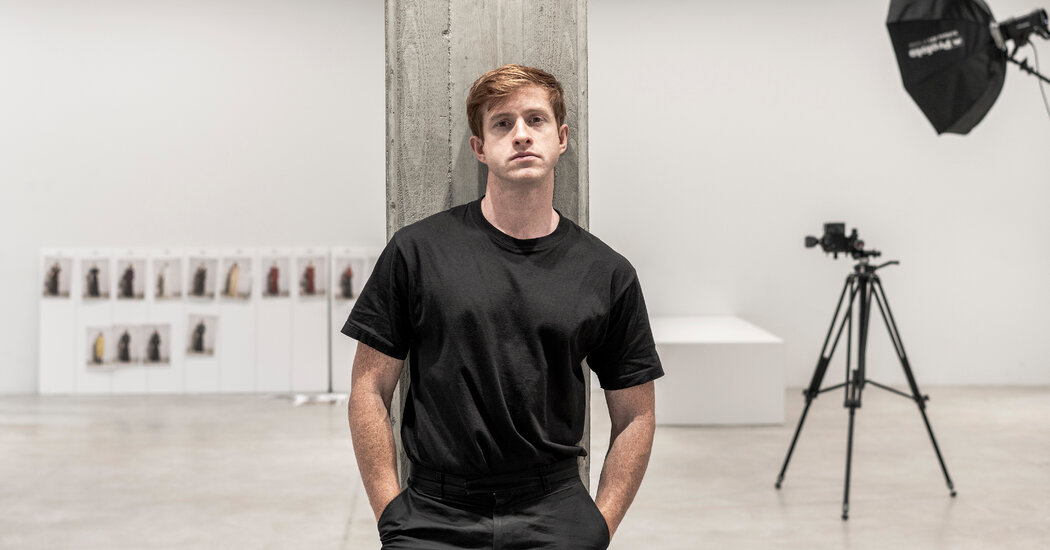
In a move that shocked the fashion world, and less than a month after holding a much-ballyhooed show in Detroit before an audience that included Mary J. Blige, Lil’ Kim and Kehlani, Bottega Veneta, the Italian luxury brand known for its signature intrecciato weave, announced it was parting ways with its creative director, Daniel Lee.
Mr. Lee, 35, who started at Bottega as a relative unknown, had been at the brand for just over three years, though in that time he was credited with reviving the formerly staid house and giving it a coolly contemporary veneer. Which made it, of course, very hot.
The news came hours before the Council of Fashion Designers of America awards, where Mr. Lee, who is British, had been nominated in two categories: international women’s wear designer of the year and international men’s wear designer of the year, and two weeks before the Fashion Awards in London, where Mr. Lee had been nominated as designer of the year.
In a statement, François-Henri Pinault, the chief executive of Kering, the luxury group that owns Bottega Veneta, thanked Mr. Lee for “the unique chapter” he wrote in the brand’s history.
“His singular vision made the house’s heritage relevant for today and put it back to the center of the fashion scene,” Mr. Pinault said.
In 2019, Mr. Lee won four awards at the British Fashion Awards for his turnaround, including designer of the year and brand of the year — more than any other designer had taken home in one night in the history of the event, including Alexander McQueen and Stella McCartney. His pouch bag, introduced not long after he joined Bottega, was a runaway hit, as were his square-toe woven pumps.
Indeed, Mr. Lee introduced such a clear identity for the brand — one built on a certain kind of rigorously modern engineering — that a tangy, saturated shade of lime green became known as “Bottega green” practically overnight. (A notable accomplishment given how many years it took Tiffany to own its signature blue, or Christian Louboutin to lay claim to red soles.)
Only last month, Kering — which also owns Gucci, Yves Saint Laurent and Balenciaga, among other brands — reported revenues of 363.4 million euros (roughly $417.73 million) in the third quarter, a growth of 9.3 percent over 2020.
This despite the fact that at the beginning of 2021, Mr. Lee took the counterintuitive step of wiping Bottega Veneta’s social media accounts clean. That move followed his earlier decision, during the pandemic, to eschew the wider fashion week calendar, opting instead to rename his dual-gender shows Salon 1 and Salon 2 (Detroit marked Salon 3) and hold them where and when he saw fit.
In the news release Kering did not say when Mr. Lee would officially leave his job, or who would replace him, though it did characterize the parting as a “joint decision.” If so, it came as a surprise to most of the fashion world, an industry where designer change is usually rumored long before it occurs (often even if it does not occur) and where designer-brand tension generally arises when sales fall (or don’t take off in the first place) or mutual unhappiness starts to leak — neither of which seemed to be the case at Bottega, despite a high level of staff churn. Indeed, Mr. Lee’s job had been regarded as largely secure. In Detroit, after his recent show, he had been practically bouncing on his toes with excitement.
“Gobsmacked!” said Ken Downing, the chief creative officer of Triple Worldwide, the company behind the American Dream mall in New Jersey. “The news of Daniel Lee leaving Bottega Veneta is shocking and unexpected, to say the least.”
Luca Solca, the senior luxury analyst at Bernstein, also called the news “unexpected,” and said it was “bad news for Kering.”
“Daniel has been able to reinvent intrecciato for Bottega Veneta and to bring it back to consumer relevance quickly,” Mr. Solca said.
Lisa Marie Fernandez, the designer, tweeted, “Oh wow … There won’t be any brands left that women can actually buy and wear anymore.”
While rumors may not have preceded Mr. Lee’s departure, it did not take long after the news broke for new whispers to start, including that perhaps Mr. Lee’s exit was related to the return of the designer Phoebe Philo, for whom Mr. Lee had worked when she was creative director of Celine. Or that maybe he had found a backer for his own brand — though he had never expressed a desire to start a namesake line.
Whether or not that is true, the abrupt nature of the parting, as well as the fact that no information has been shared about what the designer or his former brand plans to do next, is bound to give rise once again to speculation about creative versus corporate power. Not to mention kick-start the frenzied fashion game of designer musical chairs, which seemed to have briefly (thankfully) slowed down during the pandemic.
Neither Mr. Lee nor anyone at Kering was available for comment.




